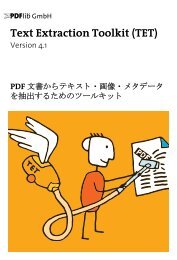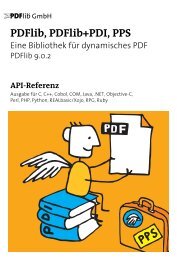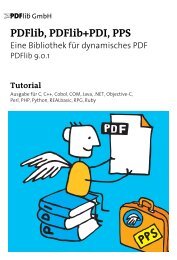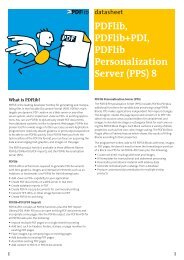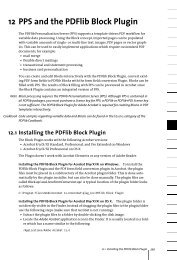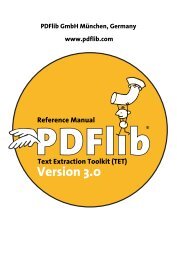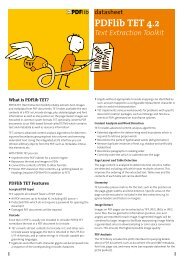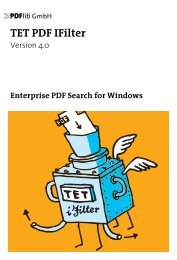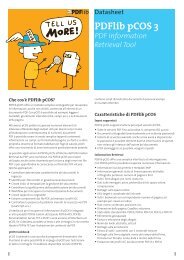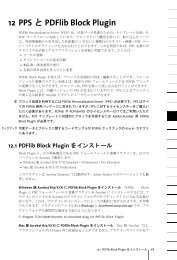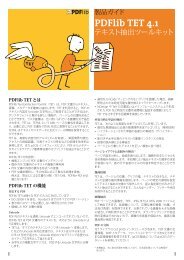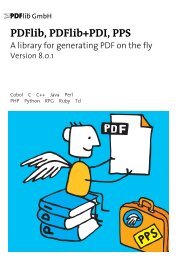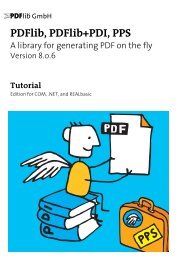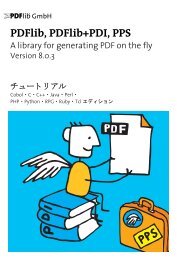PDFlib Text Extraction Toolkit (TET) Manual
PDFlib Text Extraction Toolkit (TET) Manual
PDFlib Text Extraction Toolkit (TET) Manual
Create successful ePaper yourself
Turn your PDF publications into a flip-book with our unique Google optimized e-Paper software.
10.6.2 Setup<br />
C<br />
<strong>TET</strong> *<strong>TET</strong>_new(void)<br />
Create a new <strong>TET</strong> object.<br />
Returns<br />
Bindings<br />
A handle to a <strong>TET</strong> object to be used in subsequent calls. If this function doesn’t succeed<br />
due to unavailable memory it will return NULL.<br />
This function is not available in object-oriented language bindings since it is hidden in<br />
the <strong>TET</strong> constructor.<br />
Java void delete( )<br />
C# void Dispose( )<br />
C void <strong>TET</strong>_delete(<strong>TET</strong> *tet)<br />
Delete a <strong>TET</strong> object and release all related internal resources.<br />
Details<br />
Bindings<br />
Deleting a <strong>TET</strong> object automatically closes all of its open documents. The <strong>TET</strong> object<br />
must no longer be used in any function after it has been deleted.<br />
In object-oriented language bindings this function is generally not required since it is<br />
hidden in the <strong>TET</strong> destructor. However, in Java it is available nevertheless to allow explicit<br />
cleanup in addition to automatic garbage collection. In .NET Dispose( ) should be<br />
called at the end of processing to clean up unmanaged resources.<br />
10.6 General Functions 151



